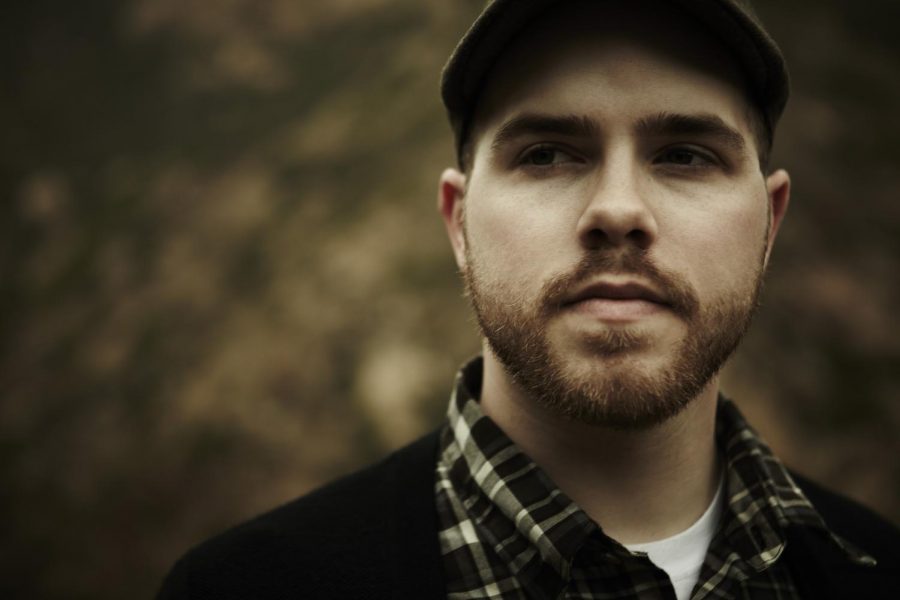Sleeping At Last still wide awake
Sleeping At Last – Ryan O’Neal
March 31, 2014
As the Christian–rock genre was reaching its peak in 1999, Christian rockers Sleeping At Last were just hitting their stride in Wheaton, Ill.
Over the course of the next decade, the members went from emo orchestral musically before peeling off one by one until pianist and guitarist Ryan O’Neal was the only member left, still promoting under the full band’s name.
Sleeping At Last’s efforts have included “Turning Page,” a song exclusively written for “The Twilight Saga: Breaking Dawn-Part 1” soundtrack and covers of the ‘80s for the long-running ABC medical drama, “Grey’s Anatomy.”
Being a Sleeping At Last fan is like having a subscription to a favorite magazine or eagerly awaiting the next season of a favorite TV show because of his subscription model of releasing music. With O’Neal releasing several thematically connected EPs a year, fans can either buy each EP separately or subscribe to get the whole collection for a lower price.
Right now, O’Neal is finishing a four-year project called Atlas, a series of EPs revolving around the biblical creation story. So far, he has released Darkness, Light, Space 1, Space 2, Land, and is set to release Oceans on an undisclosed date.
The Chronicle chatted with O’Neal over the phone about the band’s history, why O’Neal makes EPs rather than albums and how Christianity has shaped his music.
THE CHRONICLE: How does your faith influence your music?
RYAN O’NEAL: I had this idea in my head that I wanted to, as a Christian, write music influenced by my faith. But at the same time, I wanted to make sure my music made sense in any venue. We sort of set ourselves out really early as being that we would play Christian music festivals but we would also play bars. The Christian music scene at that time was a really big deal with the Cornerstone Festival. I made this rule early on that I never wanted to force my faith out of my music and I never wanted to force my faith into my music.
CC: Would you say the band had an emo sound when it formed in 1999?
RO: We would have definitely described it that way. I used to listen to Sunny Day Real Estate and things that kind of had that emo genre attached to it. I would have liked it at that time if anyone called it emo. It’s embarrassing. It’s like looking back at a really terrible haircut when you’re young.
CC: How has the group changed through the years?
RO: I started to fall in love with orchestral types of music. I would work [a] lot of string arrangements into the songs. In the last few years, I would say it’s gotten a little folkier. [Now] I would say it always originates from the piano or guitar and it usually keeps that shape pretty well. I’m a sucker for strings and piano, so that arrangement happens a lot throughout my music.
CC: How did you end up writing for the “Twilight” soundtrack?
RO: I had never seen the film before [but] I had always loved the soundtracks. I bought the movies and watched them back-to-back and tried to imagine what the next movie might sound like. I wrote “Turning Page” and sent it. I got a really cool call that they said it made it into the movie twice. I got to do a “Twilight” tour. It was really, really, really fun and such a cool experience to have my music exposed to such a sweet audience because they’re really, really nice.
CC: How has it been different playing solo shows?
RO: It has actually been really fun because I have a group of friends that are sort of my rotating band. I’ve done a lot less shows in the past couple of years but not because of being solo. It’s actually primarily because of the way I’ve been recording and writing lately. About two or three years ago, I started these multi-EP projects.
CC: What do you like about releasing EPs rather than putting out full-length albums?
RO: [The first project] was called “Yearbook.” I would put out three songs every month for a year in these little EPs. I did that, and because that’s so much music, writing and recording keeps me in the studio instead of on tour, but I love that. I love writing music, so it’s been a welcome change. I feel like doing a full-length every couple of years is fun, but there’s so much more to dig into [with EPs]. I thought, “What’s the max of songs I could write in a year without sacrificing quality?” It kind of came down to three songs a month [being] really, really difficult, but at the same time, maybe doable. I set out to do that and it ended up being a healthy model for releasing music because, as an independent artist, it’s really hard to create a campaign around a full-length record that is sustainable.
For more information, visit SleepingAtLast.com.








